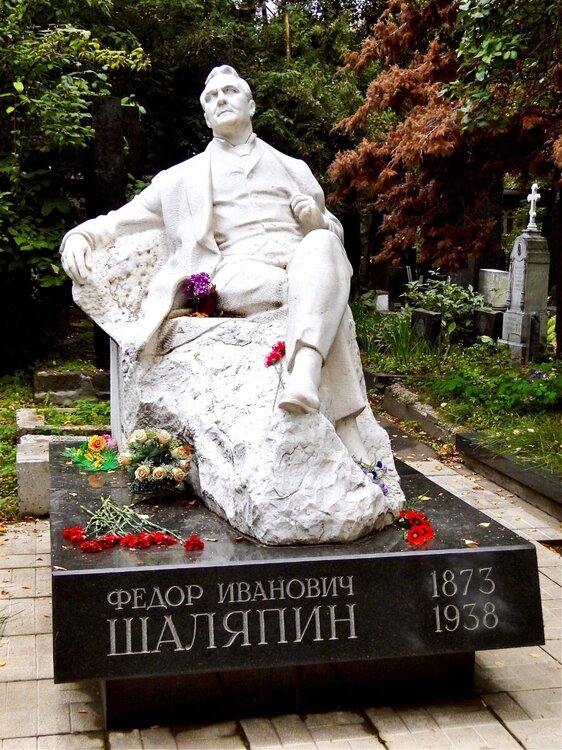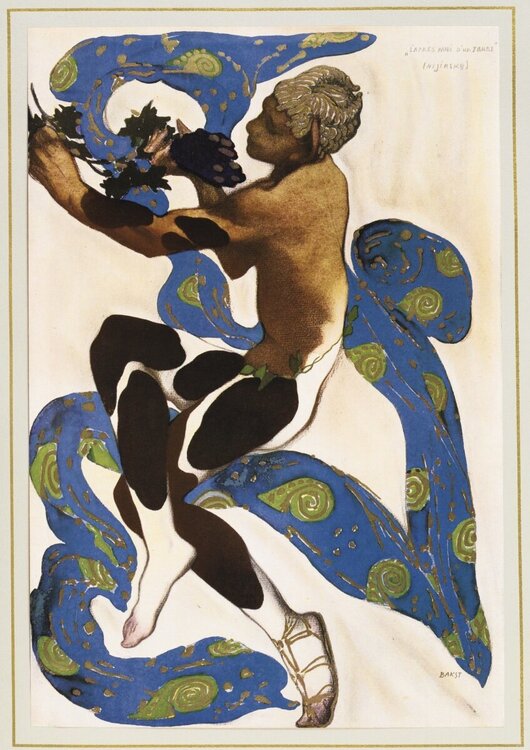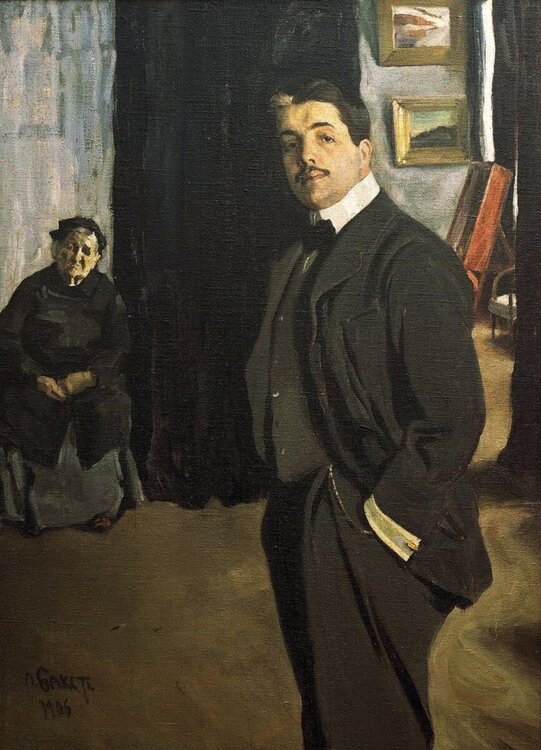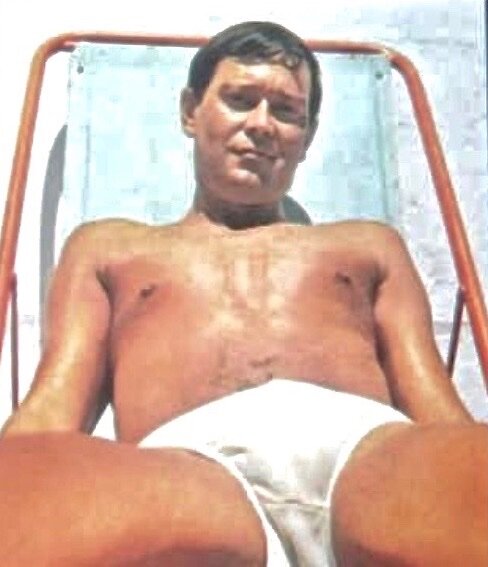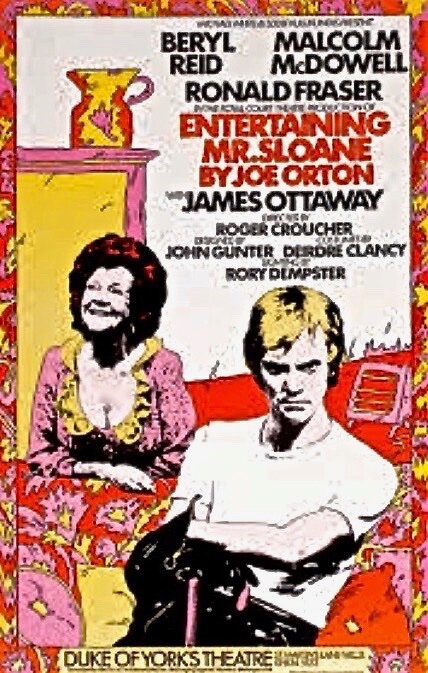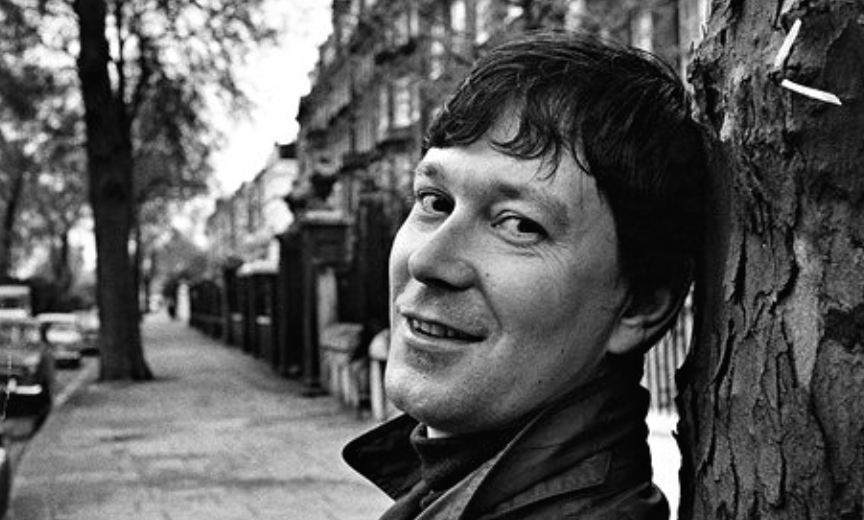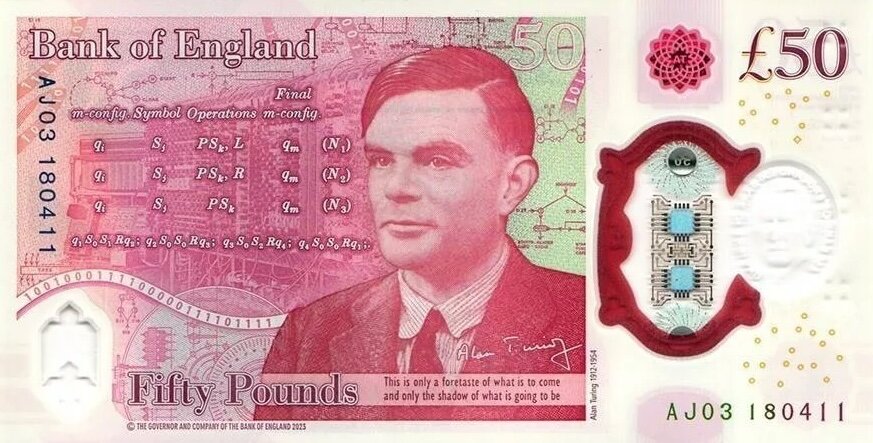
PeterRS
Members-
Posts
4,979 -
Joined
-
Last visited
-
Days Won
326
Content Type
Profiles
Forums
Events
Everything posted by PeterRS
-
Thailand may be looking at The Philppiines. It is estimated that 11% of Filipinos are working abroad. In 2019 these workers remitted back home a staggering US32.2 billion (source wikipedia). Virtually all are legally overseas, though.
-
On the 14-hour flight to London I was on the CX A350 with the 'old' biz class cabin. Like @Lucky I found the seating remarkably comfortable. I also had the cutest flight attendant looking after me. I wished more than once there was a door!! 🙄 On my recent trip I took 4 CX flights and 2 BA flights. Every single one was totally full. No doubt one reason for the usual Qatar special offers which usually start in October for the following Spring not happening last year. I have usually got a 20% or 25% discount through these offers.
-
Duplicate - sorry!
-
To be openly gay in the latter days of the Russian Empire could be extremely risky. The celebrated composer Tchaikovsky, most famous for his music to the ballets “Swan Lake”, “The Nutcracker” and “Sleeping Beauty”, was very actively gay but had agonized while keeping his homosexuality private. Surprisingly, perhaps, his younger brother Modest was also gay. Unlike Pyotr, he had no qualms about it being known that he was gay. Even so, for more than a century his native country denied what was the obvious: Tchaikovsky was not gay, all claimed. Yet in 2013 as his own purges against gay men and women were breeding in his mind, Putin declared on Russian State Channel 1, “Tchaikovsky was gay – although it’s true that we do not love him because of that – but he was a great musician and we all love his music. So what?” Tchaikovsky’s death in 1893 was officially due to cholera. For a while some researchers believed he was forced to commit suicide after a threat of being ‘outed’ by a group of princeling students. That theory has now been well and truly debunked. Whatever the true reason for his death, Tchaikovsky was just 53. It is known that Tsar Alexander III revered the composer’s works, and members of the Imperial family frequently attended his operas and ballets. According to a diary entry by Grand Duke Konstantin Konstantinovich, Tchaikovsky’s death “grieved the Emperor and Empress greatly.” One Russian had few concerns about keeping his gay life private. An avowed homosexual, he was destined to change forever the way the world looked at art and the performing arts. Born in 1872 and so almost 21 when Tchaikovsky died, Serge Diaghilev, son of a bankrupt vodka distiller, spent his early years near the Russian city of Perm. At the age of 18 he moved to the capital, St. Petersburg, where he soon managed to find himself part of an artistically-inclined gay clique. With these new friends, he would socialize, swap boyfriends and occasionally cruise for trade in the city’s parks. According to the composer Nicolas Nabokov, “he was perhaps the first grand homosexual who asserted himself and was accepted as such by society.” Serge Diaghilev painted by Leon Bakst In the first decade of the 20th century, St. Petersburg was the place to be if you wanted to work in the classical arts. By 1906 Diaghilev was making a name for himself. He was asked to mount an exhibition of Russian art in Paris. Two years later he again visited Paris with a production of Mussorgsky’s opera “Boris Godunov” featuring the most famous bass voice of the age, Fyodor Chaliapin. Chaliapin’s overly grand grave at Moscow’s Novodevichy Cemetery But it was ballet the French really wanted to see, for the Imperial Ballet of St. Petersburg was famed as the finest in the world. So in 1909 Diaghilev persuaded its best dancers to spend their summer holidays in Paris where he would mount a season performed under the title Les Ballets Russes. The season was a massive success. The exciting new choreography and bold new designs had a far more general appeal than to just the usual aristocratic ballet audience. As important was the astounding virtuosity of the lead dancers. Anna Pavlova (the Pavlova dessert of meringue, fruit and lashings of cream is named after her) was one of the prima ballerinas, but it was the astonishing lead male dancer who utterly electrified Paris. Everyone wanted to see the young, withdrawn and innocent star, Vaslav Nijinsky. Other than showing Paris his extraordinary leaps when he seemed suspended in the air and his supreme emotional involvement on stage, Diaghilev had another reason for wanting Nijinsky on this tour. The two had become lovers with Diaghilev having an almost Svengali-like hold over his 20-year-old protégé. Becoming a full member of the Imperial Ballet at the tender age of 17, Nijinsky quickly became a star. He also attracted the attention of the very rich playboy Prince Pavel Lvov. Lvov took the shy dancer under his wing – and into his bed – showering him and his family with gifts. Perhaps surprisingly today, given the times, Nijinsky’s mother was quite relieved about his homosexuality. She believed that marriage would only impede his career and had been proud to see her son with such a fine member of the establishment as Prince Lvov – and certainly grateful for his financial help. Yet Nijinsky was probably not at this time homosexual. “I loved him because I knew he wished me well,” he is quoted as saying about Prince Lvov. Well? Perhaps, but Lvov was also a good friend of Diaghilev and had no hesitation in lending him Nijinsky for a night or two. Innocent though he might have been, the young dancer knew well that Diaghilev could further his career. So he left Lvov to live with Diaghilev. Diaghilev with the composer Igor stravinsky So successful was that season of Les Ballet Russes that the ensemble was to continue to appear in Paris before and after World War 1, soon becoming a full-time company. The scope of Diaghilev’s achievement was enormous. Composers like Stravinsky, artists like Picasso and Matisse, and fashion designer Coco Chanel were engaged for works that were becoming increasingly more avant-garde. And then there were the scandals! Nijinsky wanted more artistic freedom. Diaghilev let him choreograph a work to the music of Claude Debussy. In “L’après-midi d’un faune”, Nijinsky caused a sensation when he appeared to be slowly masturbating with a scarf prior to a brief orgasmic shudder. But the outcry that followed was nothing compared to the riot which took place during the first night of Nijinsky’s choreography for Stravinsky’s brutal, pagan-like “Rite of Spring” which ends with a human sacrifice. Paris was in uproar. No one was more pleased than Diaghilev. “Exactly what I wanted,” he exclaimed! A painting of Nijinsky in “L’après-midi d’un faune” Diaghilev had a premonition he would die at sea. So when the company travelled to South America in 1913, he did not go. Unknown to him, one of what we would call today the company’s groupies, a Hungarian Romola de Pulszky, had her eye on Nijinsky and also arranged to be on board the vessel. Despite the fact that neither knew the language the other spoke, she made sure they became close on the long sea voyage. She informed him she was a Hungarian prima ballerina. When he discovered this was a lie, he ignored her. Yet she persisted and over time they became friends. Even after she was informed he was homosexual, she arranged their marriage in Buenos Aires. In fact it was within just a few days of the marriage that Nijinsky found out he had been duped. “I realised I had made a mistake, but the mistake was irreparable. I had put myself in the hands of someone who did not love me.” Worse, Romola did not even like ballet. Ballet was what Nijinsky lived for. On learning the news Diaghilev was incensed! He immediately fired his lover. What did he care? There were plenty more young men in the company and he was to be involved in affairs with several of them. For Nijinsky it was a total disaster. It’s hard to imagine the stress such a sensitive individual must have felt at being dismissed from the Ballet Russes, his sham marriage and the death around that time of several of his relatives. At his wife’s urging, he attempted to run his own company – without success. Soon he started suffering from schizophrenia. Over the years the most famous male dancer of all time was examined by many psychiatrists including Sigmund Freud. To no avail. After his last public performance aged just 27 he spent the rest of his life in an out of asylums. A typical impresario whose love of his work often exceeded his ability to finance it, Diaghilev continued to invite an ever-expanding group of young artists and composers to work with his company. By far his greatest legacy is that from the Ballet Russes came the founders of London’s Royal Ballet and New York’s City Ballet. A third completely resurrected the Paris Opera Ballet. All three companies are now amongst the world’s finest. Introduction to Diaghilev from a London Exhibition Diaghilev himself died penniless in Venice aged 57. Although his career with the Ballet Russes had spanned less than 25 years, in that time he had transformed the worlds of music, dance, theatre and the visual arts as no one else in history.
-
First, I would not go to Bumrungrad. It is the most expensive hospital in Bangkok. I suspect - hope - you may be over-reacting. I have had eye issues for decades. Now occasionally I see what seems lile a small checker board in front of my eyes. particularly when I have been working on the comuiter for a few hours. This generally lasts up to ten minutes. My retina specialist has told me there is nothing to be concerned about. Since you have an eye problem, I would first suggest you see an eye specialist. The Rutnin Eye hospital in Bangkok's Asoke has a variety of specialists and you can make appointments quickly. That would be my first stop. If they rule out specific eye problems, I would then head for a hospital emergency room. Not being a registered patient, you can not go to the Chulalongkorn public hospital. Personally, I would go to Bangkok Nursing Home (BNH) on Soi Convent where the emergency room is on the left on the ground floor as you enter. Excellent facilities and doctors at around half the price of Bumrungrad.
-
For some I know this to be true. Certainly not for me - and neither for two of my good friends who have Thai partners, both married. All three of our partners have their own jobs and none comes from the sex trade. Not one wishes to be a 'kept' boy!
-
Similarly I have always appreciated the facilities and service at BNH. I was particularly impressed when 3 or 4 years ago they offered 60%+ reductions for joint procedures (i.e. two rather than one). I took advantage of the heart MRI scan/carotid artery ultrasound and endoscopy/colonoscopy packages. Great value and I thought excellent doctors. That said, I have also enrolled in the King Chulalongkorn Public Hospital across from Lunphini Park. Although the public areas can sometimes seem like Grand Central Station, I have found the doctors excellent. Perhaps that is because most work there only 2 or 3 days a week. The cost for one visit is usually around 200 Bt. plus 50 Bt. hospital fee. The remainder of their weeks, the doctors spend in private hospitals, even Bumrungrad. Since I have had a retina problem in one eye for many years, they refer me to a Professor of Retinology at a fraction of the cost of facilities like the Rutnin Eye Hospital on Asoke.
-
Two suggestions, assuming you really plan to retire in Pattaya or elsewhere in Thailand. Buy a small apartment rather than rent. I know, this assumes you have the capital to purchase. If so, once the initial cost is out of the way, you will mostly only have management fees and maintenance to pay. Generally these will be a good deal less expensive annually than rent. I know some suggest, with good reason, that renting is preferable to buying. To each his own. Secondly, do what some retirees have done: find a regular boyfriend - and not necessarily from one of the bars. There are members who contribute to this and other forums who have regular non-scene boys. That then saves another load of cash. I have no idea how easy or otherwise this is in Pattaya. In Bangkok, as I have discovered after many years as a butterly, it is not especially difficult. On the other hand, if you are a butterfly who wants to flit around, you definitely need to factor into your budget quite a few thousand baht each week - an amount which, given the trend in recent years. is almost certain to go up over time.
-
Aside from Taylor Swift's concerts, it's been the hottest ticket in town. I'll say it straight out: "ABBA The Venture" is an incredible multi-million $$ spectacle as you've never seen one before. It has been running sold out in London for almost two years and could continue on - and on and on. Only the show's producers are considering taking it to other cities, principally in the USA, and there is talk that the London run will end later this year. Yes, they can transport it because the huge arena is actually purpose buit and can be dismantled and re-erected elsewhere with relative ease. After all, unlke a stage musical, it's only the 20-piece band and an army of technicians that also have to be transported. Thanks to George Lucas' company, Industrial Light and Magic, the megastars are not there. The Abba we see are state-of-the-art avatars of the Abba we knew and loved in their heyday of the 1970s. These digital versions sometimes look scaringly real. Lucas' company used no less than 160 motion picture cameras to capture the images. Before the show, endless emails will advise you to arrive early - as much as two hours early - to take in the atmosphere. Well, that was the one bit of oversell. I got to the east London arena an hour beforehand in time for a large vodka tonic, just one of the large variety of food and drink for sale. What is fun is to see lots of 40s, 50s, 60s and older dressed in sparkling ABBA gear all come to have a ball. And that food and beverage income along with ticket sales from the 2000 seated and 1,000 standing/dancing area tickets results in a reported bonanza of US$2 million per week. And what of the show itself? As you enter the arena, it all seems a bit boring. A semi circular wooden structure with a huge image of a Scandinavian forest projected across a huge area (yes, everything really is "huge"!) There is a buzz of excitement as the houselights dim, then a short pause before one of the loudest low notes you have ever heard. It makes the seats tremble and your gut flutter. Then begins the most extensive light show I have ever seen. It is all around and above you. In my time I have gawped at some amazing stage lighting, especially in Cirque di Soleil's "KA" in Las Vegas, But never before have I experienced anything like this. On stage - but upstage - are the four ABBA singers. I cannot tell you they were real people or not, but I am 99% certain they were real - only young doubles. They were just too far away. Soon we are regaled with a series of ABBA's greatest hits with the huge (that adjective again!) avatars on screens, looking and performing exactly as they did 50 years ago, their movements echoed precisely by the four upstage. "Waterloo", "Money, Money, Money", "Mamma Mia", "Take a Chance on Me", "The WInner Takes it All" and of course "Dancing Queen" are just some of the 22 songs in the playlist. Dancing was not confined to those in the three dancing areas. Many were out of their seats, arms aloft, their bodies swaying to the music. Everyone absolutely loved it! I have just one criticism. The four ABBA members came together in 2020 to re-record all the songs. The voices are still amazing, but the orchestral backing does sound too much like a 'mush' without the clarity you'd expect from state-of-the-art digital sound. But did anyone else find this a distraction? Not on your life! This was one show everyone came to enjoy and left feeling on top of the world. Amazing!
-
Like Emirates and Qatar whose joint orders for the now massively delayed Boeing 777X aircraft amount to over 50% of total orders, Cathay Pacific and others have been forced into an expensive retrofit of older 777 models with their planned new 777X cabins. Returning from London to Hong Kong at the week-end I was pleasantly surprised to find the 777 had Cathay's new Aria suites in biz class. These have a few modifications from the carrier's earlier long haul biz seats even after including the door. Frankly, I found the seat the most comfortable of any I have sat and reclined in. Even in Qatar's Q Suite I find when the seat is in the bed position with a thin matress over it I can still feel the metal join between upper and lower half of the seat. I then have to incline the seat slightly. A minor issue but one I hope QR addresses. With the new CX seat, the recline is seamless and very comfortable. And the linen-covered duvet is wonderfully large. The TV moniter is also larger, in a fixed position with a sharper picture and a large selection of movies and TV programmes. CX is still economising in small ways, though. Meals come without salt and pepper. Whereas the poached eggs for breakfast were superbly cooked, having to ask for condiments seems an unnecessary saving the more so when cabin staff are busy and these can take a minute or two to arrive. There were also no hot towels prior to landing. Still, that's basically nitpicking. In terms of the overall flight, I'd definitely take CX if given a choice. Re the 777X, the criticism of the huge delay in getting this aricraft into service is mounting almost daily. Due to enter service in 2020, Boeing is now saying this will happen next year. Sir Tim Clark, the Chairman of Emirates with the largest order, doubts even this is possible. Sources within Emirates suggest 2028.
-
I wonder why this is a "sad story". Making movies, unless with some form of government or an official TV station input (e.g. BBC, Canal+, National Film Board of Canada etc.), is a highly risky business. The number of successes a company may have had in the past is also no guarantee that the next one will not be a bomb. Just ask Disney whose recent remake of "Snow White" has had dire reviews. The Guardian's review headline today states "Exhaustingly Awful". Those of us of a certain age will recall "Heaven's Gate" whose loss adjusted for inflation is US$155 million. More recently the ghastly movie version of Lloyd Webber's hugely suggessful stage musical "Cats" and Spielberg's far better version of "West Side Story" have each so far lost well over $100 million. As that Nation article suggests, Thai fIlm makers and their investors seem to have been paying insufficient attention to the market. Unless you do your research and give the audience either what they want or you have the budget to persuade them that your movie is what they want to see, a movie is far more likely to bomb at the box office. Naturally there have been exceptions. Think of 1999 the indie movie "The Blair Witch Project" whose initial cost of around $60,000 saw a return of $248 million.The most recent "Call Me By Your Nam" was financially successful principally because of its appeal to a particular market and a tight budget of £3.4 million. Against that cinema revenues to date are $41 million with more expected to come from licensing and TV sales. Exceptions, though, are the rule! 😮💨
-
Sadly I cannot see either the Philippines or Vietnam being a position where they either stand up to China - or want to, if push really comes to shove. The Spratly Islands dispute has several countries up in arms, including Taiwan, Malaysia and Brunei in addition to the Philippines and Vietnam. No doubt the claimants are far from happy about it, but China has already taken many measures to ensure that the others are going to have problems if they really do want to take them. Alongside China's military might and air power, the other nations are mere minnows. In 2016 a dispute between China and the Philippines brought up at the Permanent Court of Arbitration in The Hague ruled in favour of the Philippines. Yet China has since then constructed ports, airstrips and military installations on the Islands. All the Philippines and other Asian nations have been able to do is talk - and strengthen alliances with the USA. The US wants to maintain several principles, including Nonuse of Force in Settling Disputes and Freedom of the Seas. So far it has done little to stop China's expansion on the Islands. With increasing US sanctions against Chinese manufacturers resulting in China moving many production facilities into Vietnam, I simply cannot see Vietnam upsetting that economic applecart by taking an even greater position against China re the Spratlys.
-
I wonder if any of us would have made that comment, say, 20 years ago? And I expect probably not. Then we regarded China as the next big hope for the world's economy, the more so as Japan was only finally coming out of a decade of deep economic recession. China was expanding at such a fast rate and everyone seemed to want to be associated with it. We knew about the one-child policy and the deaths of so many girl children. We didn't like it but we probably accepted the policy was essential to get the population growth rate of an underdeveloped country down. Just as Thailand had in the years after 1960 when the fertility rate was almost 6 children per family. It is now just under 2, but draconian measures were not needed. Khun Meechai and his popularisation of condoms helped achieve that. What is so different now is that whereas China's leaders were then regarded as relatively benign and were following Deng Xiao-ping's policies of openess and economic development, Xi Jin-ping comes along and the ghosts of Mao, the dreadful Premier Li Peng and the old guard come back to haunt the country and the world. The extraordinary thing about Xi is that he comes from quite a liberal family. His father was a pal of Mao on the Great March and was made a Vice Premier in the new government. He advocated tolerance towards Tibet and even hosted the Dalai Lama in his home. His son's hard line probably developed after his father was denounced when the younger Xi was 9. Yet his father was rehabilitated after the Cultural Revolution and became the top Party official in the soon to be economic powerhouse of Guangdong Province. China's top leadership was for decades after Mao a major struggle between the old guard and the reformers. I have no doubt that Xi, like others, lobbied hard for the top job. His campaign against corruption at high levels of the party was popular with the public, but that can not have been the only reason he got it. Did the reformer Presidents and Premiers who preceded him think he would continue their policies? Who was promoting him? We'll probably never know. But in the world at large, I think few expected he would become such a hard-line President much more in line with Mao than Deng?. As the country's military has expanded under Xi, I do not know which Asian country could stand up to him. Perhaps Japan, but only because it is inextricably linked to the power of the USA. The other Asian countries are either too small or too weak. What will be interesting in the future will be Xi's position if anything happens to Putin. And when, as inevitably he will either through death or assassination, he passes from the scene, who will take over and will the reformers once again find a way to the top job? But all that is going to come too late for many consideing where they might retire. South America and even Portugal sudddenly seem a lot more attractive!
-
I agree with much of @macaroni21's reasoning. I agree too with @reader's comment about location. And I suggest they are related, at least a litle. Westerners and expats knew about Sunee from a variety of sources. Asian tourists, for the most part, had no clue about it. I don't read Chinese, Japanese, Korean and other Asian gay blogsites but in one English one based in Singapore I rarely ever read about Sunee. This was long after the under-age issue when it was effectively dead to all but those who had experienced it or heard about it. Sunee's location was definitely not somewhere a newbie gay tourist would accidentally stumble upon. Did any of the gay venues in Sunee ever attempt to market their service - even to the usual western expats? They just assumed since customers had been coming, they would continue to come. Word of mouth! For example, some will remember that there used to be various free gay publications available in many of the gay bars in Bangkok - and probably Pattaya and Chiang Mai. I cannot recall when the last one disappeared, but most were in English or Thai - with one or two being in both languages. Was there ever even one article in Chinese about Sunee Plaza and/or one ad from one of the Sunee venues? If so, i do not recall any. If people do not know you exist, you have to be mighty clever to keep going on any kind of commercial basis.
-
How much responsibility do you feel for mitigating others' mistakes?
PeterRS replied to unicorn's topic in The Beer Bar
I guess you do not read. I have NEVER written "the farmer's stubbornness was due to traditional Japanese values". I have NEVER written "the whole country was behind him". As for your comparison with Luigi Mangioni, there is absolutley zero comparison. He is not Japanese and he does not live in Japan! What I have written is "Japan is Japan and trying to divine Japanese logic is all but impossible! I have always said that of Thai logic which in many senses is different from western logic, but I think Japan is even more difficult for westerners to comprehend." Yet you continue to reject this and confuse your own western values with those of people in Japan. No doubt you will continue posting silly childish cartooons which have nothing to do with the subject of one Japanese farmer in Japan. End of discussion on my part. -
Flipping through youtube videos some evenings ago, I came across this wonderful version of the haunting Albinoni Adagio. It is sung by a choir named Libera which is based at one of London's churches. It seems the choirmaster enjoys taking short standard classical works and slightly rearranging them for the choir and a small group of instruments. In recent years it has become hugely popular, has a recording contract and made more than 20 CDs, and like the more famous Vienna Boys Choir Libera makes regular international tours including two to Japan. Libera has worked with many top international artists like Luciano Pavarotti, Jose Carreras and Neil Diamond. It has also provided backing music for several movies including Shadowlands, Hannibal and a preview for The Curious Case of Benjamin Button. The Adagio by Tomaso Albinoni is thought to have been written around 1708. I rarely enjoy crossover-type arrangements but this short recording gripped me and I immediately fell in love with it. The young boy who sings the main theme Freddie Mushrafi's mother is from Ireland and his father from Bangladesh! He has one of the highest and purest boy soprano voices I have ever heard. Don't be put off by the formality of the pic below. The choreography of the piece and the camerwork is extremely fine. https://en.wikipedia.org/wiki/Libera_(choir)
-
Tourism tax to be introduced during upcoming high season
PeterRS replied to reader's topic in The Beer Bar
That's exactly the reponse I'd have given up until last year. But I had been saying for years that Thailand was too conservative a society to allow gay marriage. I sure got that wrong! Maybe this is an indication of quite significant changes in society as a whole. The younger generation which voted overwhelmingly for the new party run by Pita Limjaroenrat which was then disbarred by the old guard has. I think, now got the bit between its teeth for change. Assuming the party or its successor gets its act together at the next election, I certainly expect more radical changes. Legalising prostitution, though, may go a bit too far. -
When police finally broke into the tiny, dirty bedsit apartment in North London, even the most hardened were nauseated by what they witnessed. Blood was everywhere. Lying on the bed was the body of the younger of the two men, his head cratered as a result of nine fierce blows from the hammer that lay on his chest. The bloodied naked corpse of the older man lay prostrate on the floor, dead from a massive overdose of barbiturates. The plot that soon unraveled is the stuff of murder mysteries. One of the two deceased was indeed a writer and a highly successful one at that. But mystery novels were far from his genre. Outrageously gay and totally promiscuous at a time when gay men were supposed to remain very much in the closet, Joe Orton was one of the exceptions. Hailing from a cheap housing estate, Joe had left school early, later proudly telling friends, "I'm from the gutter." He knew he was gay and he did not care who else knew it. Rough trade was his delight and he'd cruise around London's public lavatories and red-light districts, later filling volumes of diaries with details of each encounter. Joe Orton: photo Douglas H. Jeffrey This, we should remember, was a time when homosexuality was still not decriminalized in Britain. In 1953 shortly after being knighted as one of Britain’s finest actors, Sir John Gielgud was arrested for trying to pick up another man in a public lavatory. He appeared in court where he was fined. But he was also recognised by a newspaper reporter. Publicly humiliated, for over a year Gielgud was tormented by the fear that his career was over. He even contemplated suicide. At least he did not suffer the even greater humiliation earlier endured by Alan Turing, the brilliant code breaker whose work is acknowledged as having shortened World War 2 in Europe by at least one year, if not two. Having had his house burgled, he reported the crime and admitted the fact that he had had a sexual tryst with a young man who had known the burglar. Arrested under the anti-gay 1861 Offences Against the Person Act, in 1952 the judge at his trial gave him a choice: imprisonment or chemical castration. As we all know from the relatively recent movie “The Imitation Game”, he accepted the latter. With a criminal conviction, his security clearance was withdrawn and he was banned from his government work as a cryptanalyst. In 1954 he could take the shame no longer. He committed suicide. It took until 2013 before he was officially pardoned by the Queen. Subsequently in 2017 a new law was introduced, named appropriately Turing’s Law, in which pardons were given to many, but not all, homosexuals earlier convicted under the old anti-gay law. To date more than 65,000 pardons have been issued. Sadly, nearly 80% are already dead, including Oscar Wilde. Turing’s legacy has also been honoured since 2021 when his face appeared on the back of the Bank of England’s £50 notes. This, then, was the background to Joe Orton’s public displays of his own gay nature. But Joe did not care in the slightest. Then as the Swinging Sixties arrived, London was finally breaking free from the deprivations of the post-war era, a time when Britain came to lead the world in everything from London’s Carnaby Street fashion to the Beatles and the Rolling Stones. Were his diaries how Joe came to realise he had a talent for writing? Who knows? Eventually he found his way to the Royal Academy of Dramatic Art on a scholarship aged 17 to study acting. There in 1951 he met a fellow student seven years older, a withdrawn prematurely balding man from a wealthier family named Kenneth Halliwell. No one seemed to like Halliwell much, whereas the impish, no-nonsense Joe was the life and soul of every gathering. What Joe saw in Halliwell apart from as a cash cow is equally mysterious. Perhaps it was simply that the adage 'opposites attract' was true in their case. Even so, the relationship did absolutely nothing to stop Joe's promiscuous behaviour. On leaving RADA, both tried their hands without much success at acting, writing and then doing various odd jobs. They even landed in jail for a few months after a prank when they defaced hundreds of public library books. Although Halliwell had helped Joe with his writing, in two important ways prison actually liberated Joe. First he realised he was no longer dependent on Halliwell. More importantly, as he was later to say, “It affected my attitude towards society. Before I had been vaguely conscious of something rotten somewhere, prison crystallised this. The old whore society really lifted up her skirts and the stench was pretty foul . . . Being in the nick [jail] brought detachment to my writing. I wasn’t involved any more. And suddenly it worked.” The iconoclast in him took over, poking fun at institutions and establishments that had been almost untouchable in British culture, like the police, the church and the government. Soon Joe's superior writing skills resulted in one of his plays being produced on BBC Radio. A modest success, he then embarked on what was to become his first major hit. "Entertaining Mr. Sloane" is very much a play of its time. Kath, a bored middle-aged spinster, runs a boarding house. One day a strikingly handsome blonde young man calls looking for a room. Kath really fancies her chances with this Mr. Sloane. But when her younger brother Ed arrives, he too fancies this stranger. What they are not aware of is that Sloane is a psychopath who later in the play goes on to murder their ailing father. When brother and sister find this out, they come to an agreement. In return for not reporting the crime, Sloane will spend a few months bedding Kath and then the next few months bedding Ed. It was the ideal Orton ending. “Sloane” transferred to Broadway, where the subject matter all but ensured it would bomb. It did. But it was performed more successfully in various other countries. It was also made into a film after Orton’s death. This was black comedy with serious sexual overtones. Some were outraged. As Orton became even more famous with his ensuing plays "Loot" and "What the Butler Saw", one Edna Welthorpe was a constant presence in the letters' columns of the major daily London newspapers, bombarding readers about "the filth" and "moral disgrace" of Orton's plays. Welthorpe came across as a fierce guardian of public morals. Yet she was none other than Orton himself! Ever the prankster, he was merely engaging in a bit of self-promotion. He laughed all the way to the bank! One man who admired his work was Brian Epstein, the gay manager of The Beatles. Epstein was looking for a writer for the group’s third movie. One evening at Epstein’s London house, Orton met Paul McCartney. During dinner McCartney told him he had loved “Loot” but generally did not like plays. “The only thing I get from the theatre is a sore arse,” he claimed. Orton noted that at one point there was a knock on the front door. “Five very young and very pretty boys trooped in. I rather hoped it was the evening’s entertainment.” Sadly for Joe, they were a very popular Australian group recently arrived in London which Epstein was considering managing, The Easybeats. Orton agreed to work on the movie. Five weeks later he delivered the script. It was rejected. The group did not see themselves as Orton’s cross-dressing murderers. At least Orton received his £10,000 fee. As Orton's success grew worldwide, Halliwell's career went nowhere. Popping all manner of pills to keep depression at bay, he grew both intensely jealous of Joe's success and desperately afraid he would leave him. They took a long holiday in the very gay resort of Tangier bedding all the trade that came their way. Joe sunning himself in Tangier But it did nothing to allay Halliwell's fears. Joe soon told a journalist friend that he had started another relationship and would finally leave Kenneth. Did Kenneth find out? Perhaps. But his increasingly tormented mind could take no more. Within days he had bludgeoned Joe to death before committing suicide. It was August 1967. Joe was just 34 years old. Many regarded him as one of the brightest creative talents the theatre had ever known. Apart from his plays, Joe's life and success is perhaps best-known today from the biography written after his death. In 1987 this was made into a film with Gary Oldman, Alfred Molina and Vanessa Redgrave. Appropriately both had the title, "Prick up Your Ears", ears in this context being a very obvious anagram for "arse"! How Joe would have loved it!
-
How much responsibility do you feel for mitigating others' mistakes?
PeterRS replied to unicorn's topic in The Beer Bar
With respect, I was not wrong. I agree there are stubborn asses all over the world. And with your knowledge and experience of Japan you will be perfectly well aware that every Japanese will know this farmer is being stubborn - and indeed very un-Japanese. It's a country where for centuries the group has taken precedence over the individual. But this man is not merely an individual. His case about retaining his land struck a chord with vast numbers of Japanese people. It was that fact that made the government back off. It's nothing to do with a "valiant Japanese culture", as you call it. Your asssumption in this thread has always been that the man should have seen a sort of western reason about the benefits of selling his land. And you are correct in the western sense! I have no doubt he could have held out for a humungous amount of cash which could then have benefitted not only his family for generations and the farmers who did sell their land. For you have to remember that this man is still not alone. He has a great many supporters who agree with his action. In 2015 he turned down an offer of ¥180 million (US$1.7 million at the time and no doubt could have held out for considerably more). The anti-Narita movement is the longest running social movement in Japanese history. As author William Andrews points out, the struggle is "not just about the airport. It encapsulates the last gasp of the movement, the very last concrete struggle." And this is a struggle that has seen vast tracts of land seized by the government, many clashes with the police and not a few deaths. One question I have never seen answered is why the government decided on Narita as the site for its new international airport in the first place. It was initially a secret government decision and the original plan was that it have 5 runways. presently it has 2 and getting approval for the third which it wanted in time for the 2020/21 Summer olympics consumed such vast quantities of time and patience it is still not ready. Major demonstrations started within days of Narita being proposed back in 1966. Nobody wanted the main airport to be sited there. Yet government instrasigence peristed. Flying in to Narita from the north you see dozens of golf courses, all built some time after Narita opened. Could that land not have been considered? -
I suppose I can't really talk as I was a repeat monthly customer with one masseur at Albury for about 6 years. But what about the new visitors, the tourists making their first, second or third visit and wanting to explore outside the main Silom Suriwong gay ghetto? I think there are two other very basic reasons which have been discussed before. One exmpale can be found in the hot springs. There the Japanese have absolutely no qualms about walking around totally naked. Thais generally cover their genitals with either a small cloth or their hands. Seeing a Thai walking around totally naked is a rare exception. Secondly, though, cities like Tokyo are so mega that the chance of any family member or family friend actually seeing a son on a gay spa site is zero. Even if very accidentally they happened upon a site and in a very un-Japanese-like fashion decided to open it, they would again in a very Japanese fashion not actually "see" it. The ordinary Japanese are masters at seeing but not seeing! You can witness this all the time on the subway and JR commuter trains. At rush hour young office ladies will frequently notice perhaps middle aged men reading the latest porn manga books. The men usually make no attempt to hide what they are reading. Unlike their western counterparts, the young ladies will not be shocked or even try to get closer to see all the nude drawings. They have seen but they do not see. It is part of a culture that westerners find all but impossible to comprehend.
-
How much responsibility do you feel for mitigating others' mistakes?
PeterRS replied to unicorn's topic in The Beer Bar
You've already made your point which we all get - and a couple of posters who know Japan far better than you have explained why this farmer has acted as he did and continues to act as he does. Why do you now continue to mock him with silly cartoons? Why not instead learn some Japanese and go to Japan to check your western views with those of the average Japanese so that you can understand facts and not continue to be childish about it? -
Oh dear! A memorial plaque? That's surely going way too far. Who sacrificed what? People "gave their lives"? Come on, let's face facts. With few exceptions, they worked in Sunee and virtually all were there for one reason and one reason only - owners and boys - to make money. It was their commerical decision to move and work there. Would a plaque be there to celebrate all those who failed to make money? Nobody conscripted them! Nobody forced them into some sort of slavery! These people were nothing like the 140,000 Chinese, mostly illiterate peasants, who were sent by their government to work as labourers to repair war machinery and to dig trenches for the Allied forces in Europe in World War 1 and who suffered in ghastly, appalling conditions. In return China gained less than nothing at the Versailles Peace Conference with, for example, the German concessions in Shandong being handed back not to China but to the hated Japanese! The ordinary Chinese man in the street was outraged and saw this as an enormous humiliation. Demonstrations led by students erupted in China. I mention this only because these were to lead directly to the start of the Chinese communist party. Had China been treated in accordance with its war contribution - perhaps a few plaques here and there - there might be no communist government in Beijing today. That from Bruce Ellemen, Professor of Maritime History at the US Naval War College. I know I've gone off on a tangent - but an important one given the thought that Sunee should erect a plaque! https://www.smithsonianmag.com/history/surprisingly-important-role-china-played-world-war-i-180964532/
-
Tourism tax to be introduced during upcoming high season
PeterRS replied to reader's topic in The Beer Bar
And how many times have we heard this. New scheme, great idea - but sorry guys we have not yet got a clue how to implement it!! -
How much responsibility do you feel for mitigating others' mistakes?
PeterRS replied to unicorn's topic in The Beer Bar
And that, in my view and with respect, is the western way of thinking! 😀 -
Thai Cabinet Eases Work Permit Rules For Foreign Workers
PeterRS replied to reader's topic in The Beer Bar
I just wish the government would make a slight ammendment to the rules for retirees here and on certain other visas permitting them to work for charities. Presently this is forbidden, even though totally unpaid. During covid I so much wanted to help a couple of charities doing superb work in the Klong Toei slum area. There must be so many retirees and people like wives or husbands of expat workers with lots of time on their hands and no doubt a lot of experience. Not possible!
